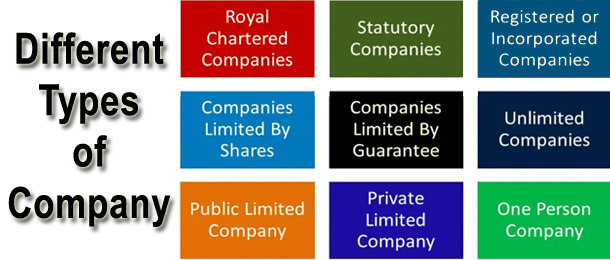
A proprietorship is a kind of unregistered business entity which is owned, managed, and controlled by only one person. The sole proprietorship business is the most commonly found business in India and is operated by the majority of the micro and small businesses present in the unorganized sector of the economy. Sole proprietorship businesses are simple to commence and have the least amount of regulatory compliance requirements for their work. This business works the best for solitary entrepreneurs who are stepping into the business world for the first time and prefer to deal with only small businesses with a limited number of clients
A partnership must be a result of an agreement between two or more individuals.
The agreement must be built to share the profits obtained from the business.
The business must be run by all or any of them representing the rest.

There are various types of entities recognized under the Indian Law
Private Limited Company:
Public Company,
Sole Proprietorship
One Person Company, Partnership
Limited Liability Partnership (LLP)
Non Government Organization (NGO)
Limited Company
Section-8 Company
Nidhi Company
Producer Company
The following are the major advantages of incorporating a private limited company in India versus other entity types.
Easy to Establish: A sole proprietorship business does not have any specific registration requirements and the proprietor’s legal identity is used by the business.
Easier to Operate: As a single person is at the helm of affairs, it is easier to operate as the particular person will be the sole decision maker and he need not consider a plethora of opinions..
Sole Beneficiary of Profits: No other business, other than that of a sole proprietorship and one person company, entitles the owner as the sole beneficiary of profits. In all other types of an entity like a partnership, LLP or company, a minimum of at least two persons are involved.
Compliance & Taxation: Since a proprietorship firm is not registered with any Government authority like the Ministry of Corporate Affairs, the compliance requirements are minimal.

An Agreement
Sharing Profit of Business
Running the Business
Proper and eligible Name (Name Approval Guidelines)
Registered Office Address & NOC from Owner
Requirement of Capital (Authorized Capital Vs Paid-up Capital)
Documentation for company registration.
The Sole Proprietorship requires opening a bank account in the name of the business, a Certificate of Registration under the Shop and Establishment Act of the respective state and GST Registration The following are the steps involved in registering a company in India:
RUN Name Approval
Digital Signature for Directors
Incorporation Application Submission
Description of the goods or services
| Passport / Driver’s License / Election ID / Ration Card / Aadhaar ID |
| PAN Card |
| Address proof of the company |
| Rental Agreement |
| Bank Statement / Electricity Bill / Phone Bill |
| NOC from landlord |
1. How to Register a Company in India?
Digital Signature Certificate (DSC) Step 2: Director Identification Number (DIN) Step 3: Registration on the MCA Portal. Step 4: Certificate of Incorporation.
2. Are two directors necessary for registration of company?
Yes, a minimum of two directors are needed for a private limited company. The maximum members can be 200. You can register as a one person company, if you are the sole owner of the company.
3. Is it necessary to have a company’s books audited?
Yes, a private limited company must hire an auditor, no matter what its revenues. In fact, an auditor must be appointed within 30 days of incorporation. Compliance is important with a private limited company, given that penalties for non-compliance can run into lakhs of rupees and even lead to the blacklisting of directors.
4. What is the minimum capital needed to do company incorporation?
There is no minimum capital required for starting a private limited company.
5. Does one have to be present in person for Company Incorporation?
The entire procedure is done online and one does not have to be present at our office or any other place for the incorporation. A scanned copy of the documents has to be sent via mail. They get the company incorporation certificate from the MCA via courier at the business address.